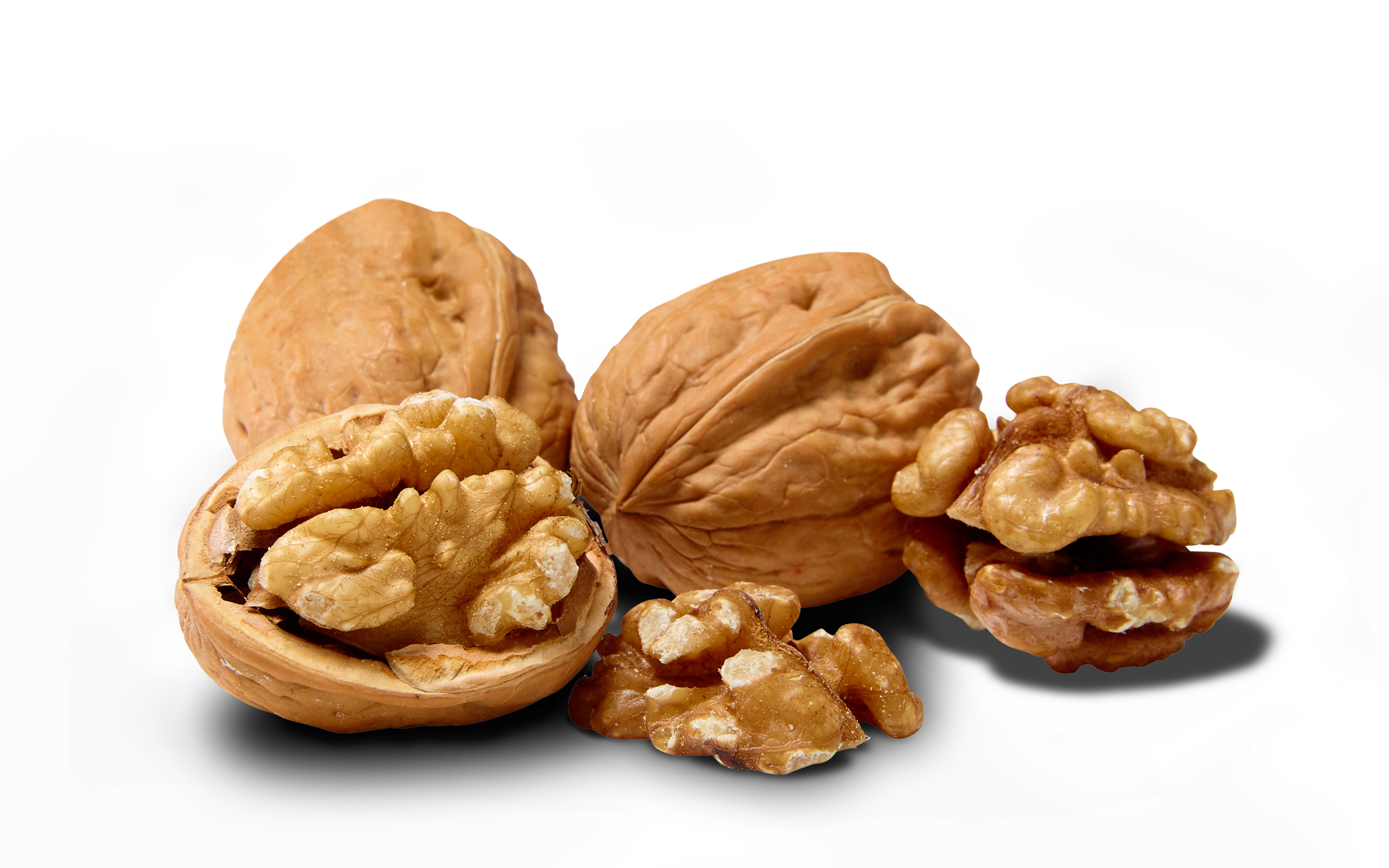Skip to:
As one of our Knorr Future 50 Foods, we’re huge advocates for the many benefits of walnuts. Keep reading for everything you need to know about walnut nutrition, including the impressive range of health benefits they offer. Plus, we’re sharing some seriously tempting recipe ideas that’ll help you incorporate walnuts into your dishes. You can thank us later!
Health Benefits of Walnuts
Walnuts are single-seeded fruits which grow from walnut trees (Juglans regia). Inside a hard shell, the wrinkly appearance of a walnut has a distinctive brain-like look, which is why they’re often nicknamed “brain food”. Walnut trees are one of the oldest tree foods, with evidence showing that humans have eaten them for over 10,000 years. Although they’re native to Asia and North America, China is now the world’s leading walnut producer.
Walnut producers have done a lot of research on the best ways to grow them without damaging the environment. Walnuts are also a perennial nut, meaning they grow all year round and are able to feed more people versus plants with specific growing seasons.
Walnuts are considered one of the healthiest of all nuts, offering an impressive range of nutritional benefits. Here’s all you need to know about the health benefits of walnuts:
1. Good for heart health
Walnuts are loaded with heart healthy monounsaturated and polyunsaturated fatty acids also commonly referred to as ‘good fats’. These fats can help maintain a healthy heart.
2. High antioxidant activity
Walnuts have a high antioxidant content. The antioxidant activity is primarily from Vitamin E and polyphenols (plant compounds). Eating foods with high antioxidant activity may reduce the risk of diseases - including heart disease and certain cancers. This is done by preventing or reducing the damage caused by oxidation.
3. Keeps you satisfied
Snacking on a few walnuts between meals helps to keep hunger down and control the appetite.
4. Support in healthy body functions
Walnuts contain nutrients like manganese and magnesium. Manganese, though needed by the body in small amounts, is very important for the body’s enzyme systems and also needed for effective brain and nervous system functioning. Magnesium is important in maintaining nerve and muscle function, whilst also supporting a healthy immune system.
5. Supports healthy heart and brain function
Walnuts are a good source of omega-3 fatty acids and omega-6 fatty acids. These help improve heart health and also support mental health.
6. Mood-booster
There are links between a deficiency in omega-3 fatty acids and depression. Walnuts are high in good fats so eating them regularly has been associated with helping regulate moods.
7. Aids the digestive system
Eating nuts is a good way to get more fibre into your body, which can help to improve your gut health and maintain a healthy digestive system. Studies have linked walnuts to benefiting the digestive system by increasing the amount of good bacteria present in the gut and supporting the microbiome.
8. They’ll give you an energy boost
If you struggle with the mid-afternoon slump, first of all, we can relate, and secondly, instead of reaching for chips or chocolate, you should try snacking on walnuts. Their fibre and protein content will give you an energy boost and help keep you feeling full - without causing a sugar crash.
9. Skin care
Vitamin E is a powerful antioxidant and a popular ingredient used in many skincare products, especially those for dry skin. Walnuts happen to be a great source of Vitamin E, and walnut oil can even be used directly on the skin to help decrease dryness.
10. Helps maintain healthy hair and nails
The great nutrients in walnuts can help restore shine and growth in hair and nails.
Walnut Nutrition
Walnuts are loaded with great nutrients, including vitamin E and magnesium. It’s worth mentioning that while walnuts are high in calories, these calories are from good fats (omega-3 fatty acids). Eating them in excess in addition to your other foods can lead to weight gain. In terms of the number of calories in walnuts, a single 30g serving (which works out as roughly 7 walnuts) contains 196 calories. A serving also provides 4.6g protein, 4.1g carbohydrates, 2.01g of fibre and 19.6g of fat.
Interesting Ways to Add Walnuts to Your Meals
With their distinctive tangy and earthy flavour, the best thing about walnuts is that they’re a satisfying snack on their own. If you’re trying to make healthier snacking choices on the go, why not keep a few in a container and enjoy whenever the hunger pangs strike?
Quick tip: Toasting walnuts gives them even more crunch and flavour; sprinkle on top of salads instead of croutons to add texture and nuttiness.
To get you started, here are three mouthwatering walnut recipes for you to try:
1 https://pubmed.ncbi.nlm.nih.gov/28797931/

